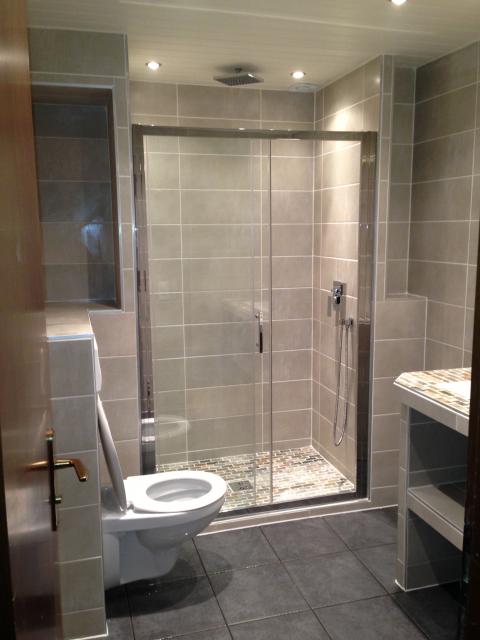Talking Bathrooms and 'wet' areas

Talking Bathrooms and 'wet' areas
Lets face it, the bathroom and the kitchen are the most expensive rooms in the house to renovate. They represent a considerable investment, and can also be the make or break on a potential sale. How the bathroom looks is one thing, but what lurks beneath is, in many ways, almost more important. As we all know, the strongest trees have the best roots.
When choosing a bathroom renovator, look very carefully at the basic building materials that are being supplied. Traditionally, 'green' plasterboard is used, that has a resistance to moisture. However, regardless of that, plasterboard is not durable in wet areas, and can break down in a relatively short space of time, leaving mould to grow and give rise to potentially damaging leaks, as well as that unpleasant musty smell that we encounter all too often when starting a renovation rip out.
At Create and Construct we only use construction panels such as Wedi and Jackoboard. This is the only option when building and designing wet areas. These construction panels are 100% waterproof, durable, and provide an excellent surface on which to lay finishing materials.
Over our Wediboard, we 'tank out' with a waterproof latex compound paint, and tape all corners and seams to ensure that the entire shower area is fully sealed. Special attention is paid to corners, a known weak spot, and corner tape is used to ensure a perfect joint.
Waterproofing doesn't end there. The glue for tiles needs to be of the 'flex' variety, meaning that it allows movement, and is resistant to moisture. Tile grout also needs to be of the hydrofuge type, to ensure that water doesn't penetrate between the tiles.
Finally, a layer of silicon is painted over the joints as a final barrier that ensures easy cleaning and prolongs the life of the grout lines, keeping the whole place looking smart for years to come.
All of the above takes time and costs money. So when you are considering quotes between tradesmen, do ask pertinent questions with regard to what the substrate will be, how it will be sealed, and what types of glue and grout will be used.
However, a good tradesman should propose all of the material above, without having to be prompted.
Do make sure that the room that you are going to invest in will stay the course. Otherwise, its like pouring money down the shower drain.
